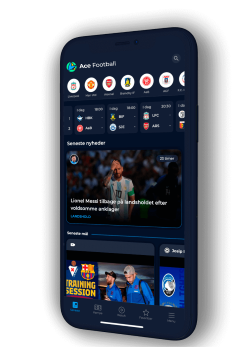Ace Football presents a detailed list of the best African players to have starred for the Rossoneri.
In recent years a host of African players have taken Italian football by storm. This is not, however, a new trend. Some of the greatest names in African football’s history have played for the Italian sides at some point in their careers.
Similar to their city rivals, Milan have been home to several top-class African stars in their history. Some of these players have spent short spells at the club, while others have helped the club shape important parts of their history.
Let’s take a look at the best African players to have played for Milan.
5- M’Baye Niang 🇸🇳
Following a few failed tests in the Premier League, Niang agreed to join Milan from Caen in August 2012. After scoring in his Milan debut a few months later, Niang established himself as a promising forward at San Siro.
The Italian giants loaned Niang out to Montpellier and Genoa before returning him in 2015. In the next two years, Niang took his appearance tally to 79 games, scoring 12 goals and nine assists. He also won an Italian Super Cup at San Siro in 2017.
Niang seemed to be on his way to becoming a regular starter at Milan when several injury setbacks prevented him from maintaining his form. The Rossoneri eventually decided to send him out on two more loan spells before selling him permanently to Torino in 2017.
4- Michael Essien 🇬🇭
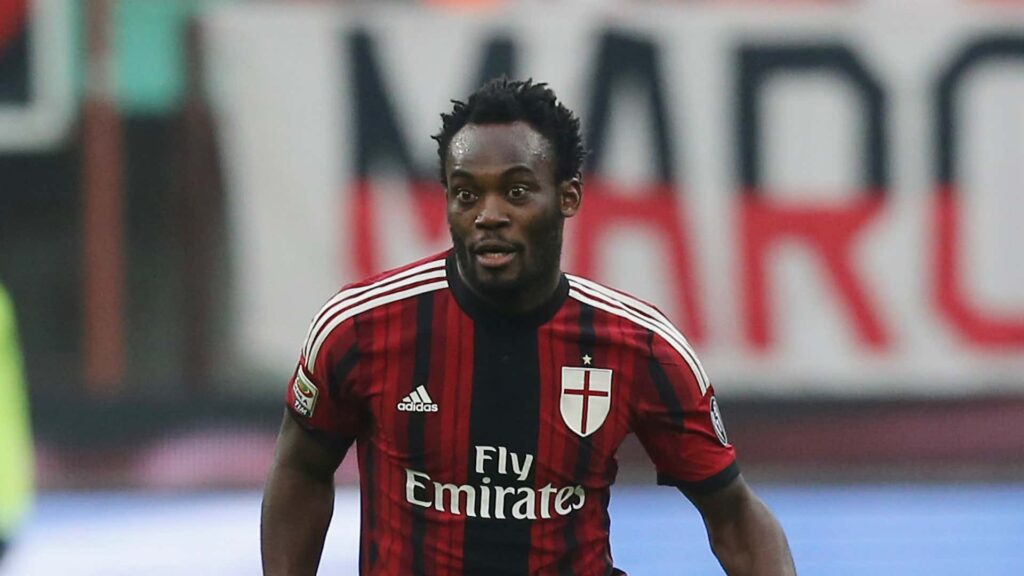
Essien ended his legendary Chelsea career after a string of injuries in 2012. Following a season-long loan deal at Real Madrid, the Ghana legend joined Milan the next year.
Similar to his short spell at Santiago Bernabeu, Essien showed flashes of brilliance during his Milan days. His combination of great physicality and game-changing through balls earned him 22 appearances for the Rossoneri.
However, Essien was too past his prime to survive in Milan’s crowded midfield. On 27 January 2014, Essien left Milan to join Greek side Panathinaikos as a free agent.
3- Sulley Muntari 🇬🇭
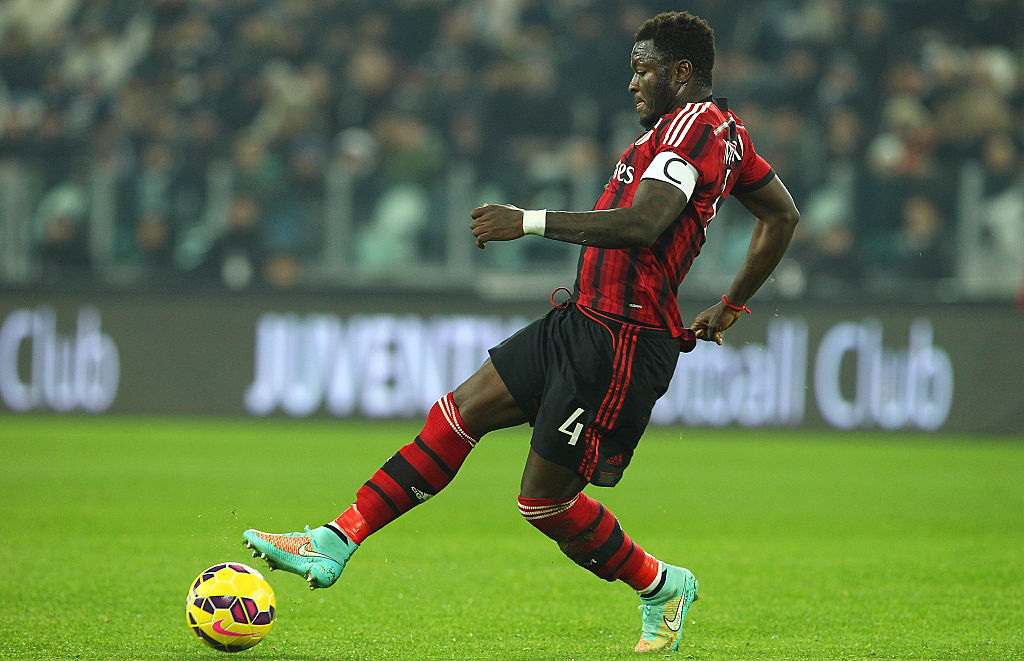
Muntari is among the players who have played for both Inter and Milan during his career. The Ghanaian midfielder spent the best period of his career with the Nerazzurri before moving to loan deals at Sunderland and Milan.
Following his convincing performances during the second half of the 2012-13 season, the Rossoneri decided to keep Muntari. He spent the next three years at San Siro while Milan was struggling to get back into the Serie A front-runners.
Despite his long-running struggle with fitness problems, Muntari featured in 83 matches for Milan. He scored eight goals and provided ten assists, with the most memorable movement of his Milan career being a controversial disallowed goal against Juventus.
2- Kevin-Prince Boateng 🇬🇭
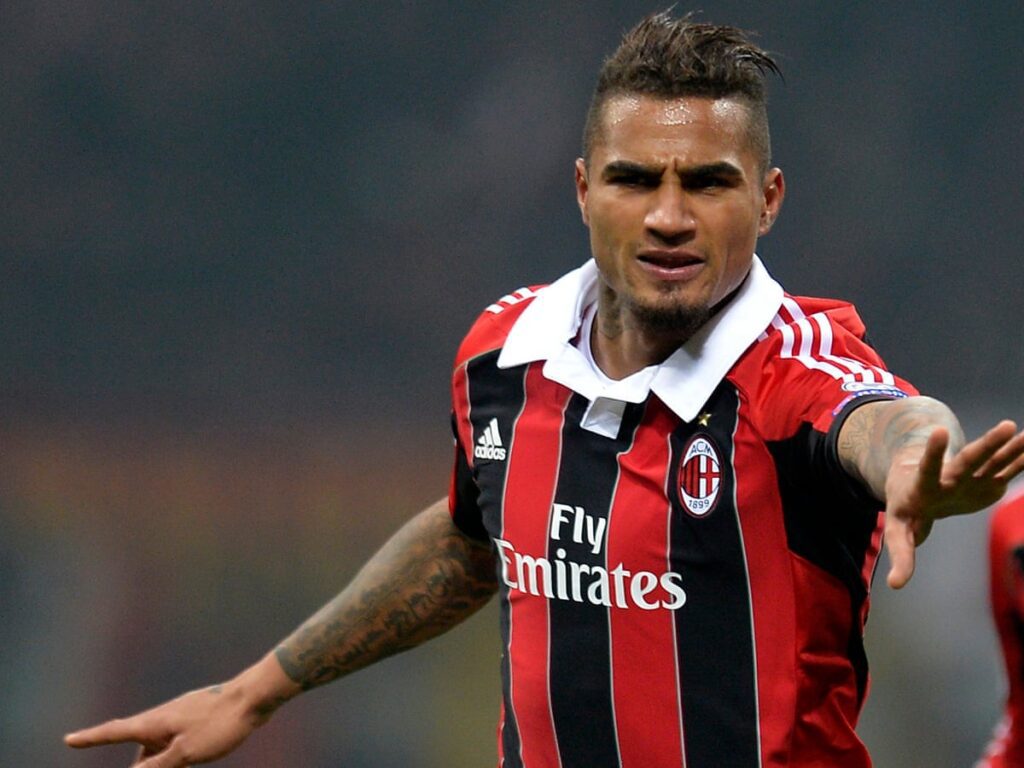
Boateng first joined Milan on a loan deal from Genoa in 2010. His immediate impact on Rossoneri’s Scudetto-winning campaign convinced the club to sign him on a €10m deal the next year.
The former Spurs midfielder spent the next two years at San Siro, before moving to Schalke. However, a sudden dip in form saw the Ghana star leave the club to return to Milan for free in January 2016.
Boateng made a total of 114 appearances for the Rossoneri, scoring 18 goals and providing 16 assists. He won a Serie A title and an Italian Super Cup during his time at the club. Boateng’s second spell at Milan lasted only six months. The midfielder left the club to join Spanish side Las Palmas in August 2016.
1- George Weah 🇱🇷
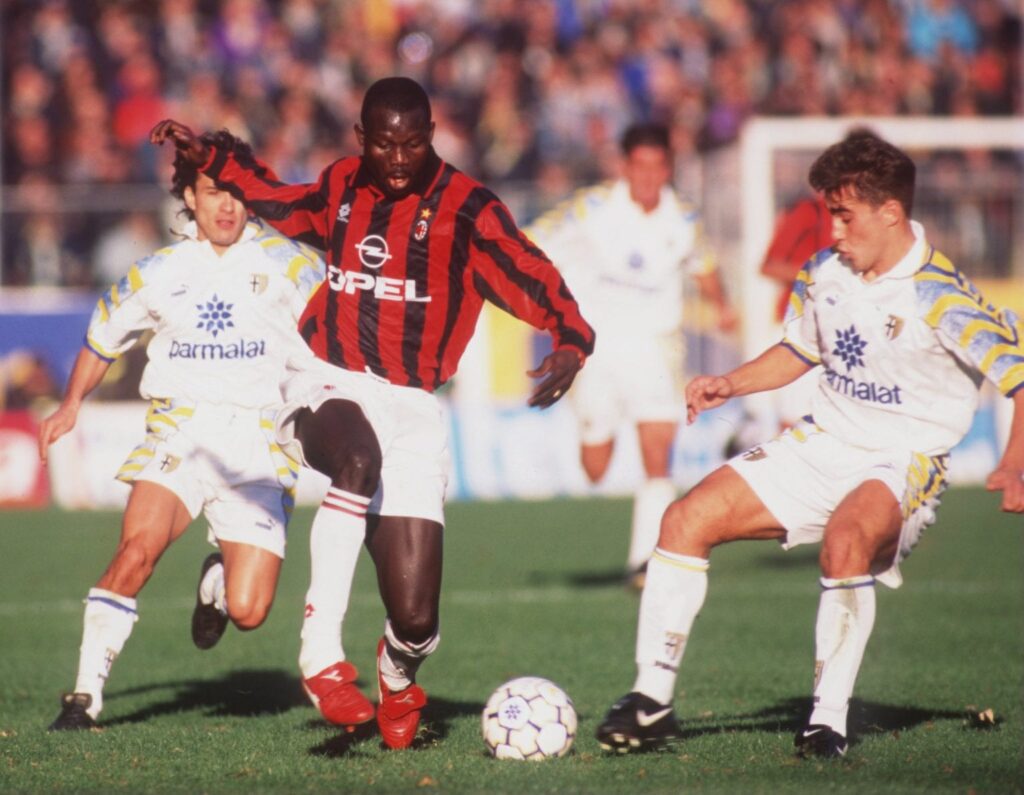
Weah is the greatest African star to have played for Milan. Liberia’s current president is the only African player who has won the Ballon d’Or, and he managed to do so while playing for the Rossoneri.
His pace and ruthless finishing led the Rossoneri to the Scudetto in his first season at the club in 1996. The three-time African Footballer of the Year won the league again with Milan three years later.
Weah’s stunning goal against Verona is among the most iconic moments in Italian top-flight’s history. The Liberian striker scored 58 goals and provided 39 assists in his 147 Milan appearances before leaving the club to join Chelsea in 2000.


